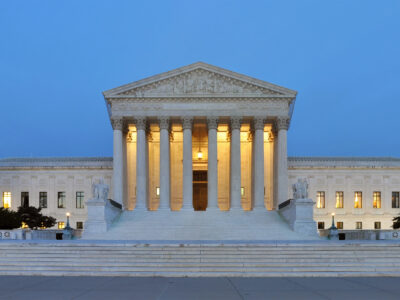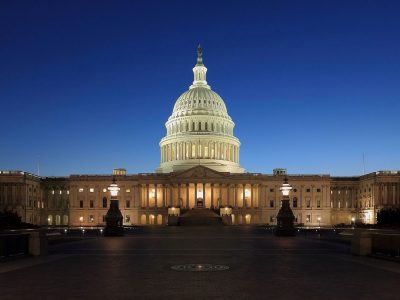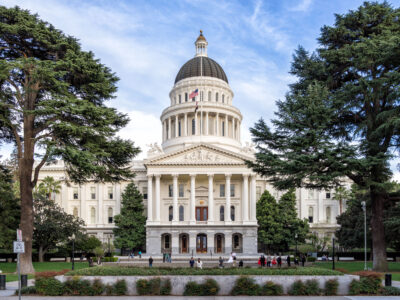Politics
Tesla’s Trajectory
What do recent developments teach us about the world?
Recent news about Tesla sheds light on the company’s future, the global EV market, crony capitalism, not to mention the state of American democracy. It may also say something about Elon Musk’s role in the company. That’s a lot of information wrapped up in Tesla’s stock prices and related developments. Overall, this is good news for the environment but bad news for democracy.
CONTINUE READING2024: Ending on a Dark Note
It was a pretty good year for the environment – until November 5, that is.
2024 ended on a grim note for anyone who cares about the environment. Donald Trump is once again in the White House. His record in the first term made him in the most anti-environmental President in history. The story of the next four years will be a struggle to limit his damage while doing as much as we can to continue progress at the state level and in the private sector.
CONTINUE READINGGood & Bad Environmental News From the U.S. Supreme Court
Escalating Legal Attacks on California’s Longstanding Clean Air Act “Waiver” Authority
This past week, the U.S. Supreme Court issued important orders in two closely-related environmental cases previously decided by the U.S. Court of Appeals for the District of Columbia. Last Friday the justices granted review in Diamond Alternative Energy v. Environmental Protection Agency, agreeing to decide whether fossil fuel manufacturers have legal standing to challenge an …
Continue reading “Good & Bad Environmental News From the U.S. Supreme Court”
CONTINUE READINGTrump & Environmental Policy: The Sequel, Part I
Expect a lot of the same, but there could be some new twists.
They say that history never repeats itself, but it often rhymes. As in many sequels, there will be many things we’ve seen before. Much of that consisted in an all-out attack on environmental law. If you hated the original, you won’t enjoy watching the same thing the second time around. This will include massive regulatory rollbacks and expansion of fossil fuels regardless of environmental harms.
CONTINUE READINGYes, Virginia, There ARE Federal Climate Laws.
Contrary to myth, Congress has actually passed laws relating directly to climate change.
It’s a common misconception that Congress has never passed any climate change legislation. But Congresshas passed at least laws regulating two powerful greenhouse gases, as well as a series of other laws stretching back almost forty years. The story begins under President Nixon and extends into the Biden years with the multi-billion dollar Inflation Reduction Act.
CONTINUE READINGOne Bright Spot to COP29 in Baku
The outcome of this year’s U.N. climate conference was depressing. But there was some notable news regarding global methane emissions commitments.
Some have described the United Nations Climate Change Conference (COP29) in Baku as “challenging,” “ineffective,” and “disappointing.” On the one hand, global greenhouse gas emissions have reached an all-time high, and the temperature for 2023 is the highest ever recorded. On the other hand, President-elect Donald Trump announced his intention to withdraw the U.S. from …
Continue reading “One Bright Spot to COP29 in Baku”
CONTINUE READINGClimate Politics and Electoral Realignment
Some deep-seated dividing lines in U.S. politics seem to be eroding, with potential implications for climate policy.
The electorate is changing. Racial divisions are blurring, the GOP has gained a solid following among working class voters (especially whites), and college graduates and those with above median incomes have shifted to the Democrats. Among the many effects will be changes in the politics surrounding climate change. We will start to see an increased rate of success for advocates of climate actions in off-year and down-ballot races.
CONTINUE READINGU.S. Energy Industry Trends To Watch In A 2025 Trump Presidency
New Trump administration policies will impact the energy industry, but maybe not in the ways Trump supporters expect, writes Guest Contributor Allan Marks.
Allan Marks is a partner at Milbank LLP and a lecturer at UC Berkeley School of Law and UCLA School of Law. This article was originally published in Forbes, for which he is a contributor, on November 7, 2024. When Donald Trump returns to the Oval Office in January 2025, his second presidency will have …
Continue reading “U.S. Energy Industry Trends To Watch In A 2025 Trump Presidency”
CONTINUE READINGTrump-Proofing Time at the California Legislature?
Governor Newsom has called a special session for December 2nd. How can California lawmakers ensure California’s climate and environmental progress in the years ahead?
During the last Trump administration, California emerged as a serious counterweight to federal government backsliding on climate and the environment, and last week, some California lawmakers publicly recommitted to resisting future Trump administration efforts to reduce environmental and climate protections. On November 7, Governor Newsom issued a proclamation calling the Legislature into a special session …
Continue reading “Trump-Proofing Time at the California Legislature?”
CONTINUE READINGPresident-Elect Trump vs. California: What Lies Ahead?
Will It Be Environmental Law & Policy Deja Vu All Over Again? Or Even Worse?
Californians who care about the environment likely–and justifiably–feel whipsawed this week. Former President Trump (#45) has re-emerged as President-elect Trump (#47), interrupted by the intervening four years of the Biden-Harris presidential administration. (Actually, this presidential whipsaw has been going on for decades: think Bush Sr.-Clinton-Bush Jr.-Obama-Trump-Biden-Trump redux.) In general, California’s progressive environmental laws and policies …
Continue reading “President-Elect Trump vs. California: What Lies Ahead?”
CONTINUE READING











